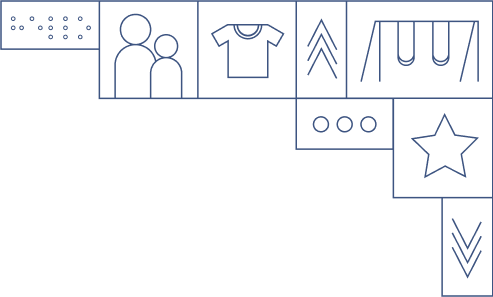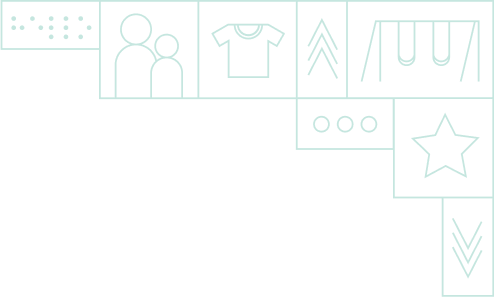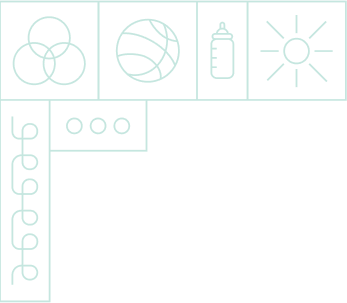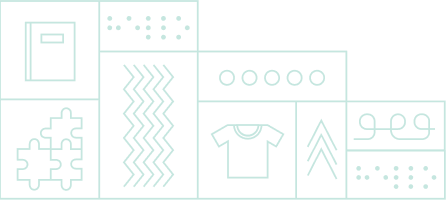


Discover A Child Care Career
Discover A Child Care Career
Kansas is in need of more professionals to provide essential care for our children. With a career in child care, you can make a powerful and lasting impact on young minds and hearts in your local community.
- Do meaningful work backed by a network of support
- Mentor children for a happy, healthy start
- Form close relationships with families and children
- Start a career in a high demand field
- Work from home and own your own business with a licensed family home
Types of Child Care Facilities
Types of Child Care Facilities
Depending on what type of career you’re looking for, one or all six of these options may speak to you. All child care providers are regulated by Child Care Licensing, with standards based on program type. For more in-depth information about these regulations, read the corresponding Kansas Department of Health and Environment regulation handbook.
Licensed Center-Based Child Care:
Child care centers are typically larger facilities with multiple classroom-like environments separated by age. Working in a center will provide a team-like approach to care, where you’ll work together to support and educate children. Each type of facility has its own requirements for licensing and employment.
Centers
Centers are usually all day during normal working hours. You’ll work with a classroom of kids, separated by age. Ages range from 2 weeks to 16.
Head Start
There are a variety of options for Head Start programs. This is a good choice if you want a career in supporting families above and beyond care.
Preschools
Preschools are for children aged 30 months through kindergarten. Each session is 3 hours, although you may work more than one session.
Licensed Home-Based Child Care:
Child care programs typically operated out of the provider’s home. Children in care must be under 16 years of age. The total number of children in care at any one time is based on the ages of the children in care. If your own children are under 11 years old, they count toward the total number allowed. Infants require greater supervision, so having more infants will mean fewer spots for children of other ages.
Licensed Family Home
If you want to own your own business out of your home, a licensed in-home daycare is a great option.
Licensed Group Home
If you want to own your own business but share responsibilities with another person, a group daycare home is a better choice.
Licensed or District-run School-Age Programs:
Also referred to as out-of-school-time care, school-age programs offer child care for kindergarten through 6th graders when they’re not in school. This can include before or after school or during the summer break with day camps. They can either be run by school districts or licensed as separate programs. If you’re a teacher or administrator, this may be an opportunity to create an additional source of revenue.




The process to become a provider
The process to become a provider
Kansas children deserve more people like you. Your decision to become a child care professional impacts countless families needing quality care. Use these resources to take your first steps toward becoming a child care provider.
- Be 16 years of age or older
- Must be 18 years of age or older to be a lead staff in a center or to be a primary provider in a licensed home or group facility type
- Be able to pass a background check.
- Meet the hiring requirements of the child care facility where you’re applying
Our children deserve the best possible care. That’s why developmental training is so essential in this field.
All providers must complete the following training in courses approved by the KDHE Secretary. This training will help you be prepared for situations and job requirements you’ll have as a child care professional.
- Basic child development
- Recognizing, reporting, and preventing child abuse or neglect
- Prevention of and response to emergencies due to food and allergic reactions
- Prevention of shaken baby syndrome, abusive head trauma, and child maltreatment
- Handling and storage of hazardous materials
- Administration of medication to children
- Building and physical premises safety
- Reducing the risk of sudden infant death syndrome (SIDS) and using safe sleep practices
- Prevention and control of infectious diseases, including immunizations
- Transportation of children
- Emergency preparedness and response planning
- Pediatric first aid and pediatric cardiopulmonary resuscitation (CPR) certification (an in-person skill test is required, and a copy of the current certification card must be on file)
Kansas Child Care Training Opportunities (KCCTO) Foundations for Safe and Healthy Early Care Facilities module covers each of these training requirements, outside of first aid and CPR which must be completed separately. Trainings for these two fields can also be found on the KCCTO website.
Home-based providers must complete training within 30 days of submitting their application. Center-based providers must complete training within 30 days from the date of employment or before given sole responsibility.
Register Now launchInterested in taking your education to the next level? Explore additional training opportunities today.
More Training ResourcesAre you interested in opening your own child care business? Complete the orientation with your licensing specialist to be on your way to a new career as a licensed child care provider in Kansas.
You must be 18+ and complete certified first aid and training, in addition to a high school diploma or equivalent. If you’re opening a home-based facility, you and everyone living in your home must complete and pass Kansas Bureau of Investigation (KBI) and Kansas Department for Children and Families (DCF) background checks.
You must also complete an online application and pay a State License Application Fee (some counties may also require a fee).
Schedule Your Orientationlaunch Explore Financial Opportunities Read Licensing Requirements